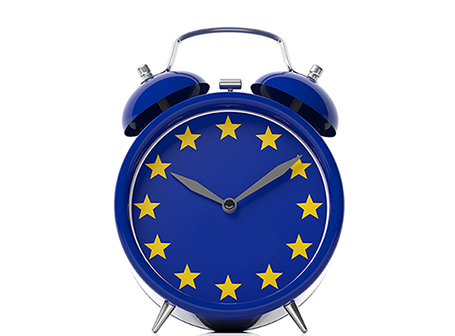VIEWS
Don’t delay,
new EU due diligence legislation is underway

9 March 2022
On 23 February 2022, the European Commission published a long-awaited proposal for an EU Corporate Sustainability Due Diligence Directive (draft Directive). It could be 2-3 years before we can expect to see a final version, but it has the potential to transform the European economy.
The draft Directive has arrived at an already changing and uncertain regulatory landscape. In the last year, Germany and Switzerland have adopted new laws that raise the bar for human rights and environmental corporate due diligence. Many European companies are already investing significant resources to prepare for these new national requirements that come into force in 2023.
As the draft Directive is likely to change, some companies may choose to only focus on their national legislation. That could prove short-sighted. We recommend business leaders take a step back to consider the potential long-term impacts the draft Directive will have and ensure that the systems they set up now, are still fit for purpose when the final Directive comes into force.
Here are our three key takeaways to help companies take their next steps.
1) The draft Directive has the potential to transform the European economy
It is important to consider the draft Directive as one element of an emerging transformative European policy landscape, where businesses are being asked to align their corporate strategies and investments with social, environmental and climate goals.
The draft Directive itself presents an ambitious ask to companies as leaders rethink and reset the way they do business. They will need to find new ways of integrating human rights, climate and environmental issues into one overarching corporate sustainability due diligence approach that informs and is integrated into their business strategy.
But the Directive is not alone, the EU Commission has mapped out how the draft Directive complements other policy provisions including the ambitiously revised Non-Financial Reporting Directive, the EU Taxonomy Regulation or the Sustainable Finance Regulation. Taken as a whole, this promises a significant shift in the European economy.
2) Sustainability becomes part of a directors’ duty of care
This draft Directive not only asks companies to incorporate human rights, environment, and climate goals into business strategy but also links it to directors’ duty of care.
Based on the current version of the EU proposal, company directors should expect to see the following additions to their duties:
- When fulfilling their duty of care, consider human rights, climate and environmental consequences of their decisions.
- Adopt a plan to ensure that the business model and strategy of the company are compatible with the transition to a sustainable economy and with the limiting of global warming to 1.5°C in line with the Paris Agreement.
- Put in place and oversee the due diligence actions required by the Directive and report to the board of directors in that respect.
- Ensure corporate strategy takes into account the actual and potential adverse business impacts on human rights and take actions to mitigate them.
- Link director remuneration to these activities.
By including these requirements, the EU proposal exceeds the German and Swiss laws and makes it clear that corporate sustainability must be led from the top, and leaders will be held to account for it.
3) Meaningful stakeholder engagement will be required to avoid the compliance trap
In February, we highlighted that companies need to be aware of the ‘compliance trap ’ as new regulations come into force. This is when companies become so focused on meeting specific legislative requirements that they lose sight of the actual goal, which is to make a difference to lives and livelihoods and by doing so, to de-risk and strengthen the business.
This also applies to the draft Directive which asks companies to demonstrate the appropriate level of compliance through contractual assurances and audit-based verification processes. In our experience, embedding human rights into business isn’t achieved through a focus on contracts and audits alone. To know if you are addressing your actual impacts as a business, and whether your actions are making a difference, it must involve meaningful engagement and dialogue with rightsholders (those whose rights are impacted) and include wider stakeholders such as suppliers, subsidiaries, and business partners.
We therefore advise companies to start building their expertise in meaningful engagement with rightsholders and stakeholders now. By effectively identifying and managing their risks through addressing the impacts on the most vulnerable people in their supply chains, companies will secure both long-term value for their business and meet the new legislative requirements.
Final thoughts
Although the draft still has a way to travel, it’s clear that it will be more demanding than any existing legislation. In our view, the best way for companies to respond is to align their current due diligence activity with international standards such as the UN Guiding Principles on Business and Human Rights and the OECD Guidelines for Multinational Enterprises.
We know it takes time to implement due diligence and even longer for the processes to mature. It’s the companies that take steps now to know, understand and take action to reduce their social and environmental risks that will not only deliver for all their stakeholders ahead of the legislation but also build critical business capabilities and performance for the future.
We have over 18 years of experience in integrating human rights management and sustainability into business. We are excited to support companies in their response to the draft EU Directive and other recent national legal requirements. Meet the team that can support you.
